A craving for ice or a constant yearning for salty foods could indicate an underlying issue or a deficiency in vitamins and minerals, according to experts. That’s why it’s crucial to be aware of any new habits, particularly if they appear abruptly and without an obvious cause. We’ve compiled a list of signs your body might be sending you, aiming to assist you in leading a long and fulfilling life!
Content is provided for informational purposes only and is not intended as a substitute for medical advice. Seek guidance from your doctor regarding your health and medical conditions.
1. A crawling, creeping sensation in your legs.

If you experience strange sensations in your legs and feet, such as crawling, creeping, or an urge to move, it might be a sign of restless leg syndrome. This chronic condition often causes discomfort at night when you are trying to sleep.
2. Changes in handwriting, loss of smell, and vivid dreams.

Most people are familiar with Parkinson’s disease, but fewer know its symptoms. Doctors warn that tremors, slowed movement, disrupted sleep with nightmares, and changes in speech and writing can all be indicators of the disease.
3. Skin thickening.
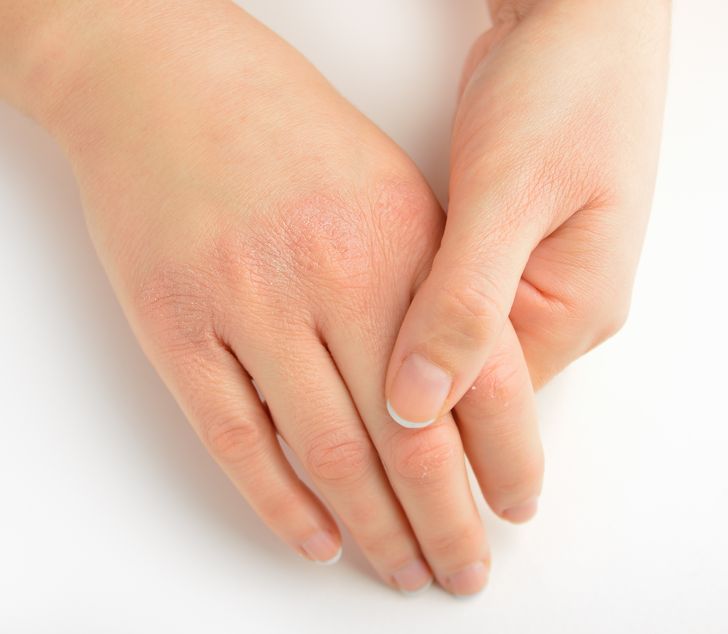
Don’t overlook or downplay skin issues. Thick, itchy skin can indicate various internal problems, such as hormonal disorders, eczema, or allergies. Consider having blood tests if this issue continues or worsens.
4. Excessive sleeping.

This condition is known as hypersomnia, and doctors say it can arise from factors that show it’s more than just tiredness. Certain autoimmune diseases can trigger an overwhelming urge to sleep in any setting. Additionally, consuming alcohol before bedtime can also lead to this effect.
5. Alterations in eye color.
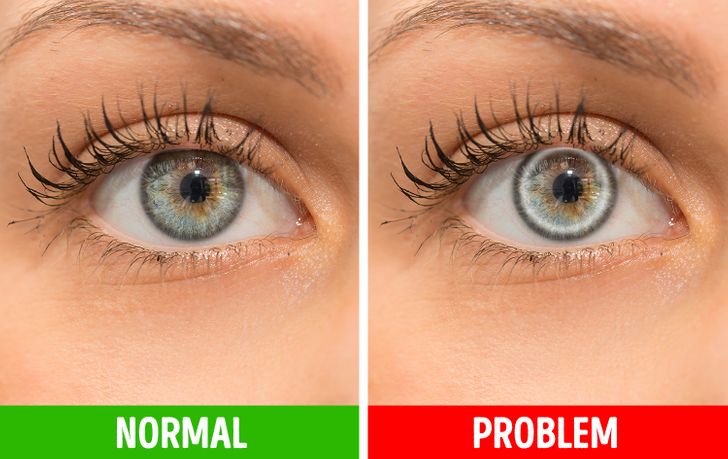
Doctors have noted that a white or grey ring around the cornea of the eyes in individuals under 45 may indicate high cholesterol. The ring itself is harmless and only affects appearance.
6. Anger and aggression.

Outbursts of anger may not always stem from your personality. Some researchers suggest they could be linked to depression. They argue that depression isn’t solely characterized by low energy or sadness; it can also manifest as aggressive behavior.
7. Changes to the breast.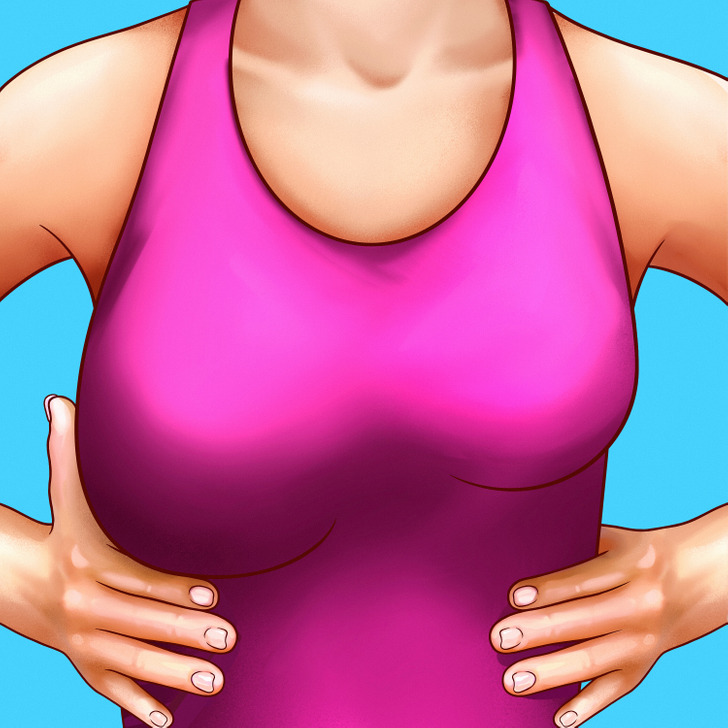
If you observe changes in your breasts such as lumps, increased firmness, dimpling, redness, scaliness, or itching, promptly contact your doctor. Early detection of these symptoms can significantly enhance the likelihood of a positive outcome.
8. Cravings for salt.

Enjoying salty food is fine, but if you find yourself unable to control the craving and it becomes the only thing you desire, it’s time to investigate why. According to medical experts, This could indicate iron deficiency, anemia, dehydration, or premenstrual syndrome.
9. Constant thirst.

Feeling thirsty all the time isn’t normal, experts say. Sometimes, it may be related to your diet, so check if you’re consuming too many spicy or salty foods. Persistent thirst could also indicate diabetes or pregnancy.
10. Itching sensations
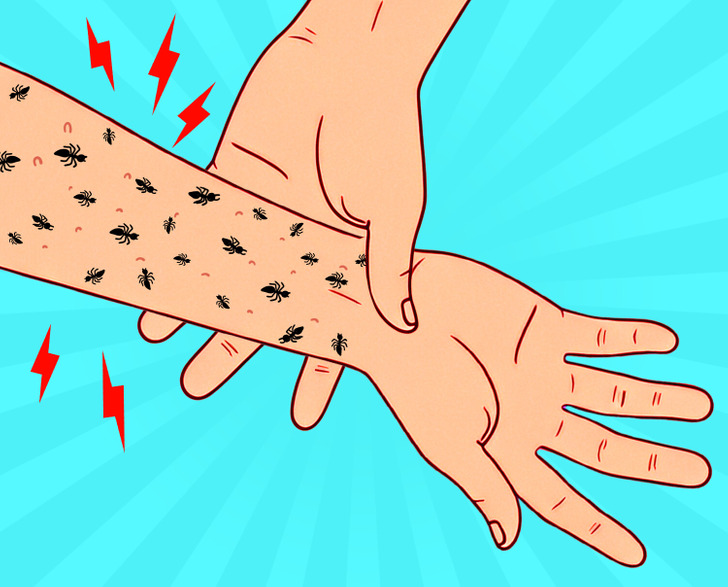
Why do you feel itchy all over?
More than 1 in 10 pregnant women have itching. It’s usually not harmful and is caused by skin stretching and hormones. But if it gets worse at night, it could be a sign of something serious. Tell your doctor if you’re itching so they can check if you need tests.
What else can cause itching all over?
- Skin problems like dry skin, eczema, psoriasis, scabies, burns, scars, insect bites, and hives.
- Internal illnesses like liver or kidney disease, anemia, diabetes, thyroid issues, and some cancers.
- Nerve issues such as multiple sclerosis, pinched nerves, and shingles.
- Mental health conditions like anxiety, OCD, and depression.
- Irritation and allergies from things like wool, chemicals, soaps, or certain medicines.
11. White tongue
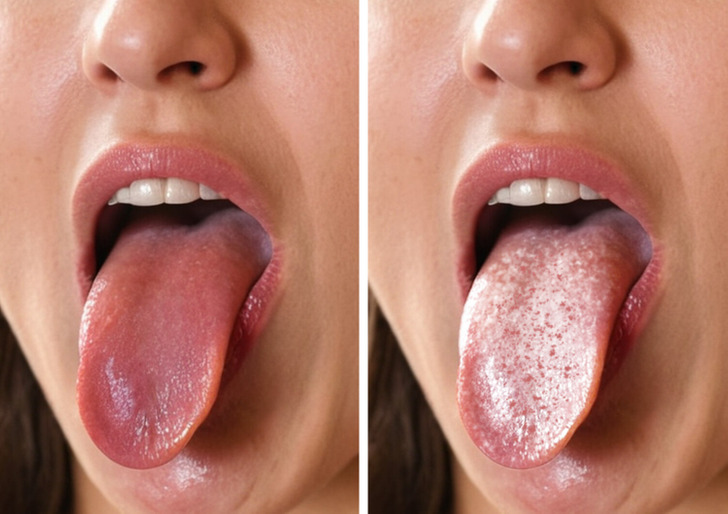
White tongue occurs when a white coating develops on part or all of the surface of your tongue. It can be accompanied by symptoms like bad breath, a hairy tongue, and irritation.
Causes can be:
- Neglecting oral care, like not brushing, flossing, or cleaning your tongue often.
- Bad habits.
- Using dentures or injuring your tongue with sharp objects.
- Taking antibiotics, which can cause yeast infections in the mouth.
- Having a diet lacking in fruits and vegetables and high in soft foods.
- Breathing through your mouth.
- Experiencing dry mouth due to medical conditions or certain medications, such as muscle relaxers or cancer treatments.
- Oral thrush, also known as oral candidiasis, is a condition where the fungus Candida albicans builds up on the lining of your mouth. While Candida is typically present in the mouth, it can sometimes overgrow and lead to symptoms.
12. Muscle twitches
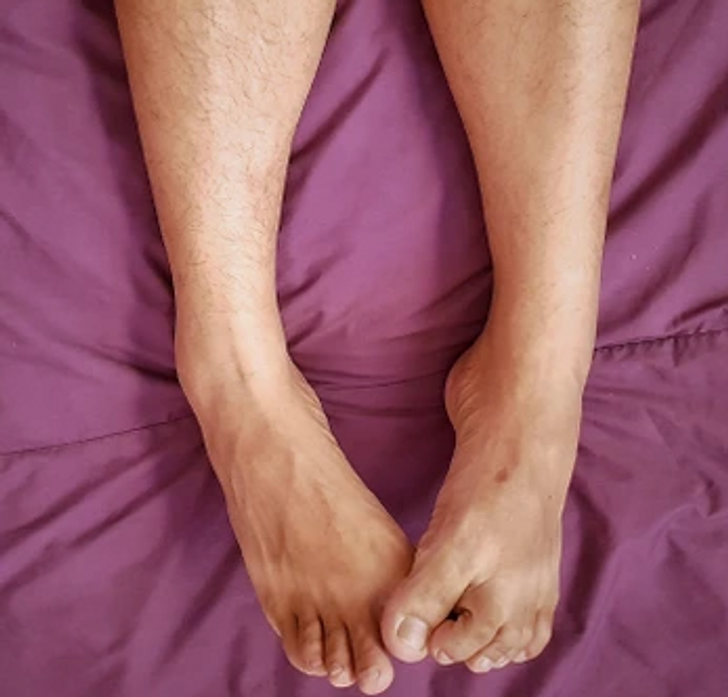
Sometimes your muscles act on their own, without you telling them to. They might twitch or contract and have trouble relaxing. Twitches and spasms are most common in areas like your thighs, calves, hands, arms, belly, ribcage, and the arches of your foot. Doctors aren’t always sure why they happen, but a few things can trigger them.
- Your muscles need minerals like potassium and magnesium to work properly.
- Not drinking enough fluids can make your muscles more likely to twitch and spasm.
- Having too much caffeine can also cause muscle twitches in different parts of your body.
- If you have high blood pressure or heart disease, your doctor might prescribe water pills, which make you pee more. This can lower your potassium levels and lead to muscle spasms.
- When nerve cells are damaged, it changes how they talk to each other and to the brain. Twitches and spasms can be warning signs that this common condition is affecting the nerves that control your muscles.
Maintaining good health is essential for a happy, balanced life. When we’re physically and mentally well, we have the energy to pursue our goals, enjoy relationships, and engage fully in life. Prioritizing exercise, healthy eating, adequate sleep, and self-care practices lays the foundation for overall well-being and fulfillment.
Source: Brightside
